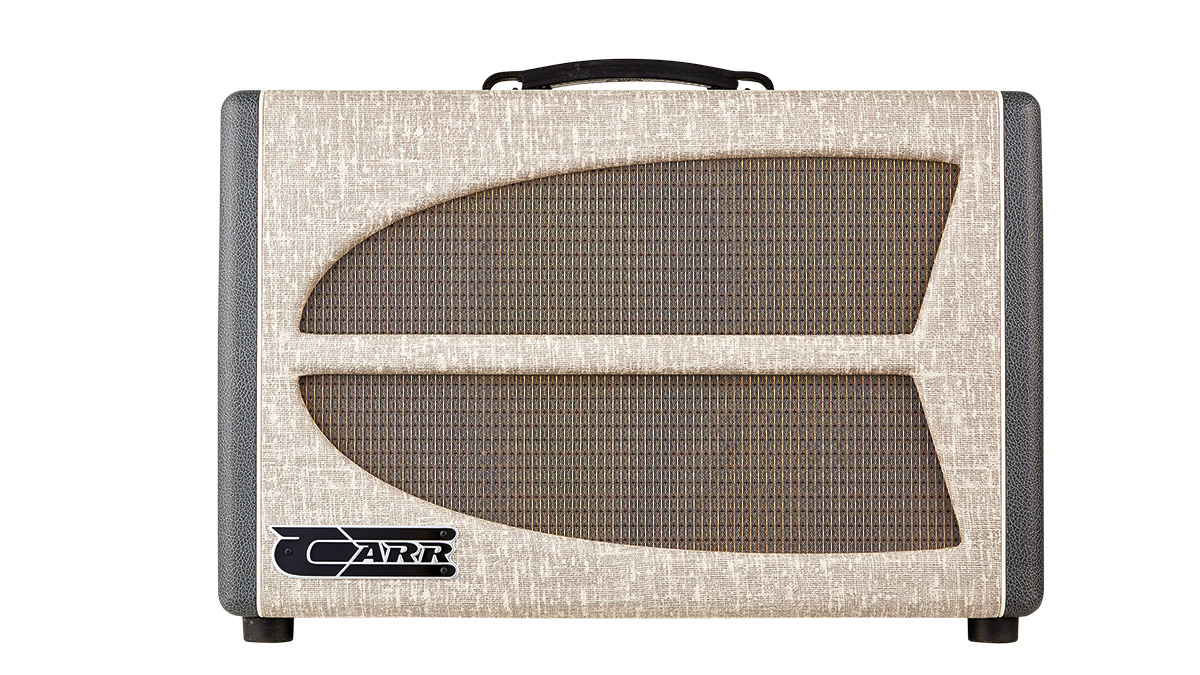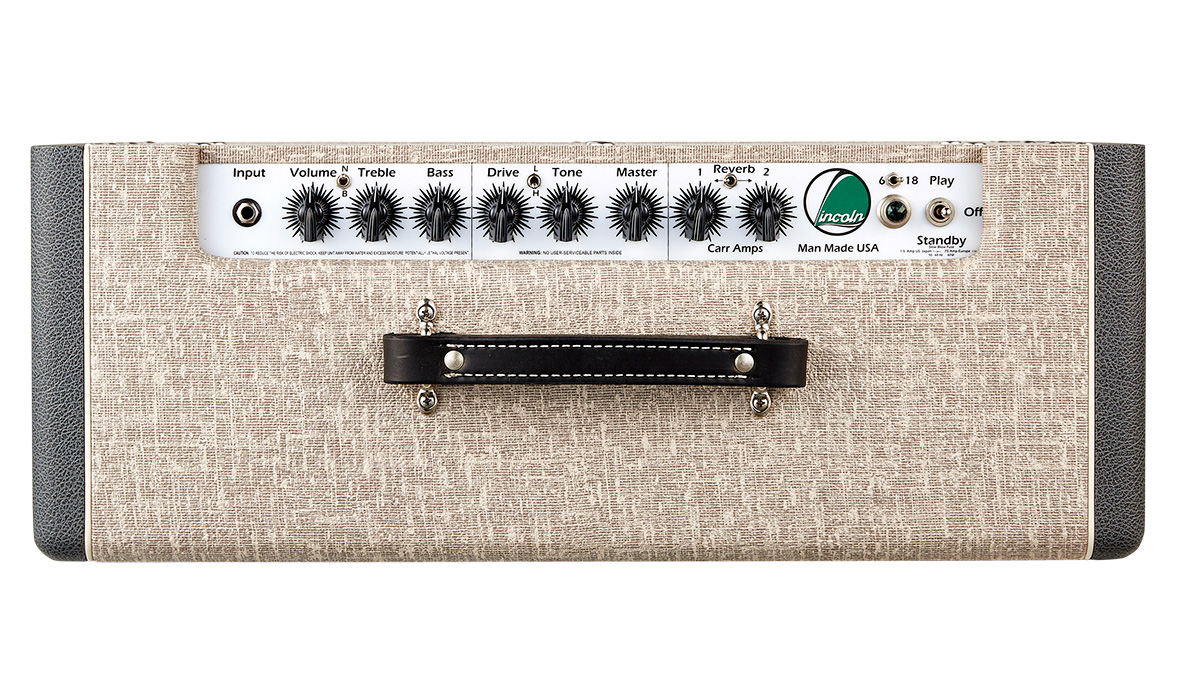MusicRadar Verdict
The Carr Lincoln is a tour de force amp from North Carolina's finest.
Pros
- +
Brims with truly stellar Vox-inspired tone, with huge range and versatility.
Cons
- -
That stellar tone also commands a stellar price tag, but it's worth it.
MusicRadar's got your back

Carr Lincoln 1X12 Combo

Carr Lincoln 1X12 Combo
Not a lot of people know that North Carolina, home to some of America's most beautiful scenery, is also America's number-one producer of sweet potatoes, and its second-biggest provider of Christmas trees.
Another interesting fact we think should be on North Carolina's official website is that the state is home to a disproportionately large number of very talented guitar-amp manufacturers, including some of the USA's top boutique names, among them Carr.
We have a medium-sized combo from this highly respected builder - the Carr Lincoln, an amp loaded with Celestion Creamback G12 loudspeaker. The hot loudspeaker of the moment, it's one of Celestion's best-sounding drivers since the Vintage 30 and a firm favourite with many boutique brands.
Steve Carr's cabinets are renowned for their craftsmanship and the Lincoln is no exception, with an upcharge two-tone vinyl finish on this sample complemented by a distinctive speaker grille and Carr's trademark thick leather carrying handle. The hint of 1950s Googie-influenced styling combined with perfect vinyl work bestows extreme 'I want' appeal on the Lincoln, even before it's plugged in.
The Lincoln's spring reverb also has separate channel-level controls, and the standby switch has a low and high power setting. Carr amps have a very distinctive construction that blends modern hi-fi components, such as Solen fastcaps and Analysis Plus speaker cable, with traditional point-to-point wiring that doesn't use any kind of board support.
This type of build is very labour-intensive and needs careful tweaking to ensure consistency from one chassis to the next. Carr is one of just a handful of manufacturers building this type of amp today.
Small components are secured with blobs of silicon glue, which - it has to be said - doesn't look visually attractive when compared with some other boutique brands. However, each resistor and capacitor is carefully placed and positioned for sonic and electrical integrity rather than looks, and the quality of soldering and wiring is first class.
Want all the hottest music and gear news, reviews, deals, features and more, direct to your inbox? Sign up here.
The switching is taken care of by relays, which sit on small PCBs. The Lincoln's beefy diode-rectified power supply uses large Solen polypropylene capacitors instead of electrolytics. Originally developed for satellite use, the Solens are often found on audiophile hi-fi amplifiers. To our knowledge, Carr is the only manufacturer to use them on a guitar amp.
Sounds
The Lincoln fires up smoothly, with practically no background noise. We tried out a number of different guitars with the amp, including an old Strat loaded with Duncan Alnico Pro IIs, a PAF-equipped Les Paul Standard, an original '72 Les Paul Custom and a Fender Custom Shop Nocaster.
Inspired by the Vox AC10, the Carr Lincoln's two channels add quite a bitof extra versatility. The clean channel's volume, treble and bass controls are deceptively simple.
A normal/bright toggle switch flips the Lincoln between AC10 grind and Top Boost sparkle, while the two tone controls interact smoothly and progressively. We never noticed the lack of a midrange control; by positioning the treble at lower settings and the bass a little higher, you bring the midrange forward, while increasing treble and reducing bass scoops out the mids a little, for a leaner tone.
The volume control is also very nicely tuned, with most of the clean headroom in the first third of its travel. After this, the gain and drive increases to take you into classic Vox territory, nailing the sound of those edgy, iconic riffs from Beatles classics such as Paperback Writer and Day Tripper with typically consummate ease.
Things take an altogether different direction when you step on the footswitch and unleash the Lincoln's second channel. This has a lot more drive, available in two stages that can be selected from the front panel or the footswitch.
Channel two has a darker overall vibe - not such a bad thing, as it lets the guitar's midrange punch through a little more. Steve Carr likes high gain and there's enough in this channel to take on huge Brian May tones without the need for a separate overdrive pedal.
The single tone control on this channel isn't a treble cut, but seems to operate on the midrange, sounding dark when turned down and scooping out mids to leave a sharper treble edge when turned up, with a lot of different effects between these two extremes.
Separate reverb level controls for both channels is a neat touch that makes full use of the Lincoln's excellent valve-powered reverb circuit. The reverb is smooth and detailed - maybe a little too glassy if you overdo the treble on channel one, but adding lush density to channel two - perfect for long, sustained ballad solos.
The Lincoln has another trick up its sleeve, in the shape of a six-watt low-power setting, which makes all the amp's overdrive tones available at more bearable volume levels - a good thing, because the Carr's big power supply makes it very loud on full power.